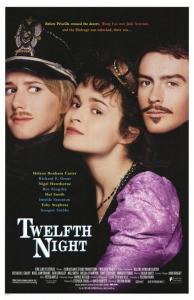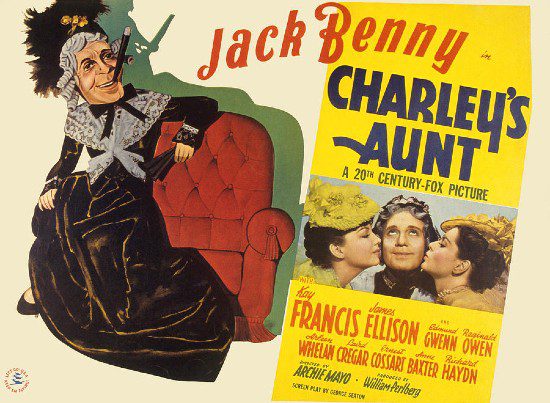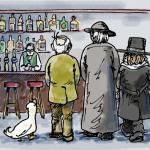“Dost thou think because thou art virtuous there shall be no more cakes and ale?”
— Twelfth Night, Act II, Scene 3
Four hundred years later people like Malvolio are still around. Like the pompous villain of Shakespeare’s Twelfth Night, these people imagine they possess a superior personal virtue and that this entitles them to abolish from the world everything they regard as vice. One problem with such people is that the long list of things they regard as vice includes many things that are, in fact, good.
Cakes and ale are Good Things. A world without cakes and ale would be a poorer, sadder place and there is nothing virtuous about trying to remake the world into a poorer, sadder place.
Yes, even Good Things can become bad when indulged in excessively or exclusively — as in the example of Sir Toby, the character who speaks the line above. But Toby’s struggle with gluttony doesn’t change the fact that cakes and ale are, in themselves, intrinsically good. They are pleasurable and delightful. Whenever anyone seeks to forbid pleasure and delight, or seeks to abolish intrinsically Good Things in the name of “virtue,” understand that they are, like Malvolio, acting as villains.
There’s nothing at all virtuous about an abstemious moralism that puckers at the thought of anyone, anywhere being happy.
 A current wave of vicious pseudo-moralism from our modern Malvolios is what led to my rewatching Twelfth Night recently. I was looking for the 1996 movie version with Imogen Stubbs but instead found this charming, ultra-low-budget 2018 version starring Sheila Atim. Atim plays both Viola and her twin brother, Sebastian — the one great advantage that movie versions of this play have over live productions, since both characters eventually wind up on stage at the same time. (That ’96 version probably should have had Stubbs play both roles as well.)
A current wave of vicious pseudo-moralism from our modern Malvolios is what led to my rewatching Twelfth Night recently. I was looking for the 1996 movie version with Imogen Stubbs but instead found this charming, ultra-low-budget 2018 version starring Sheila Atim. Atim plays both Viola and her twin brother, Sebastian — the one great advantage that movie versions of this play have over live productions, since both characters eventually wind up on stage at the same time. (That ’96 version probably should have had Stubbs play both roles as well.)
I enjoyed both movie versions. They’re both very funny and entertaining, even if neither one is as giddily exhilarating as the live version I saw at the Folger in DC. That 2003 production directed by Aaron Posner featured a bunch of terrific actors from Philly’s Arden Theater. The bit where they switched the fencing duels into dance-offs worked so well I kind of think everyone should do the play this way from now on.
The plot of Twelfth Night (or What You Will) is sublimely twisted. Viola survives a shipwreck and finds herself in a foreign land, believing her twin brother was lost at sea. Alone and far from home, she disguises herself as a man in order to find work and shelter as a servant to the local Duke, Orsino, who has been pining with unrequited love for a noble woman named Olivia. This all turns into a gender-bender love triangle as Olivia falls in love with Viola, Viola falls in love with the Duke, and he confuses himself by falling in love with his new servant.
That all had another layer of complication in Shakespeare’s day, when only male actors were permitted on stage. That meant the part of Olivia was played by a man dressed as a woman who was falling in love with a man dressed as a woman dressed as a man. I don’t think that makes contemporary productions less funny, it just means it’s easier for us to keep track of why it is we’re laughing.
Classic Shakespearian “britches roles” like Viola in Twelfth Night and Rosalind in As You Like It require cross-dressing. That’s not at all unusual in theater. Nor is it anything new.
The new and unusual thing is the weird political movement spreading across America in which right-wing governors and state legislatures attempt to make any performance involving cross-dressing illegal. Those new laws are aimed at drag queens — the bizarre new scapegoat du jour for MAGA Malvolios — but all of them wind up also outlawing everything from Twelfth Night to The Nutcracker.
Trying to ban drag is every bit as immoral as trying to ban cakes and ale. “Dost thou think because thou art virtuous there shall be no more drag queens?” That makes you as much of a fool and a villain as Malvolio. Drag is a Good Thing and trying to ban a Good Thing makes you anti-good.
And, to be as clear as possible, being anti-good is bad.
It also makes you a humorless git. Anyone, anywhere, who is railing against drag queens on stage or drag queens reading books to kids is someone without a functioning sense of humor. (They know this to be true, which is one source of the free-floating rage that seems to drive so many would-be “culture-warriors.”)
Which brings us back to Twelfth Night.
My proposal is simply this: Every high school and college theater program in Florida and Tennessee should be putting on this play. So should every community theater in those states and in every other state where grandstanding demagogues are pretending that policing gender conformity is something that elected officials are entitled to do.
Twelfth Night is great art. Audiences love to see and actors love to perform it. Plus it’s royalty free.
Calling on all of these theaters and school theater departments to stage Twelfth Night isn’t asking any of them to do anything they haven’t already been doing for years now. They put on plays and this is a great play.
But couldn’t they get in trouble for staging this play now? Well, sort of. But the point here is that they’re already in trouble, whether they know it or not. They’re already being threatened by the same lawless lawmakers now furiously trying to shut down every drag show and Panto and anything else they can pretend offends their purported virtue.
Consider, for example, Theatre Tallahassee, a community theater just two miles from the Florida State Capitol building where the legislature is considering various “anti-drag” laws. Theatre Tallahassee has been around since 1949 and over those years they’ve staged dozens of plays that would potentially get them shut down by some of the laws now being considered in their state. They’ve done Twelfth Night. They’ve done A Funny Thing Happened on the Way to the Forum at least three times, and Charley’s Aunt twice. Heck, just a few years ago they put on La Cage Aux Folles.
They didn’t choose any of those plays as a political statement but doing any of them today would become a courageous political statement because the Malvolios of Florida’s Republican state government have politicized everything.
Even freaking Charley’s Aunt.
That 1892 British comedy is what theater people call a “chestnut.” It may not represent the pinnacle of the dramatic arts, but it’s a crowd-pleaser, a low-stakes rom-com farce that’s still funny after 130 years.
The main character in Charley’s Aunt is a perpetual student at Oxford named Lord Fancourt Babberly. His friends call him “Fanny Babs.” Fanny* spends most of the play in a dress, pretending to be “Charley’s Aunt” so that he can serve as a chaperone for his pals Charley and Jack as they woo their respective would-be fiancees. Charley’s real aunt also shows up. Hijinks ensue. It’s great fun.
You can watch the 1941 movie version starring Jack Benny on YouTube for free. It holds up pretty well.

“Jack Benny … in a dress” may not be the most elegant gag ever devised, but it still works. Even if it may no longer be legal in Florida and Tennessee.
It seems strange to suggest that high school theater programs in those states now have something like a moral duty to put on a play like Charley’s Aunt, but these are the times we now live in. And not only do I genuinely think that this is a moral obligation for those schools, but I think it may even require a measure of moral courage for them to do this.
The current right-wing moral panic being stoked by demagogues and groups like the “Malvolio Moms for Liberty” are trying to build a world without cakes and ale. We’re obliged to defend cakes and ale while we still can.
So if you’re a community theater in Florida or Tennessee or Arkansas, or a high school theater program in one of those states, then you need to be planning a production of Twelfth Night or As You Like It or Charley’s Aunt.
And if the petty-tyrants of “Moms for Liberty” threaten to protest, cast their kids in leading roles.
* In Britain, where this play was written and first performed, Charley’s Aunt is regarded as wholesome, harmless, family fun. Is it suitable for children? Of course! Children love slapstick and they love seeing Fanny Babs in a dress.
At the same time, in Britain, the name “Fanny Babs” is a much bawdier gag than it is over here. That illustrates something James Croft discusses in his thoughtful post “In defense of drag.” He’s talking specifically about the beloved tradition of the “Christmas Pantomime,” but what he says here applies equally to things like Charley’s Aunt or, for that matter, Twelfth Night:
Panto, then, occupies an interesting position in UK pop culture. On the one hand it is absolutely family entertainment. People regularly take their children to pantos, and many of the stars who perform in them are ones children would be more familiar with than their parents. Elements of the show, like the audience participation and nonsense songs, are designed to entertain children, and young children are often brought on stage for participatory scenes.
On the other hand, panto is explicit adult entertainment—and adult entertainment with a queer twist. Gender-bending is an essential part of the form, with the “principal boy” traditionally played by a woman, and the “pantomime dame” almost always played by a man. Characters like the wicked stepsisters in Cinderella are often played by men in drag, too. And the best pantomimes are suffused with double-entendres so extreme that adults are left in incredulous stitches.













